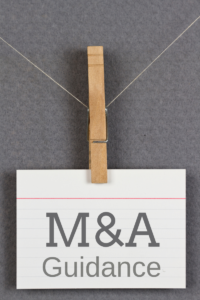If you’ve been following our blog for the last several weeks, you’ve learned that all business owners should:
- obtain a formal valuation of the business
- work with a financial advisor to understand (1) how much in liquid assets you’ll need to exit your business on your own terms, and (2) approximately how long it will take to accumulate the assets you need
It doesn’t matter if you are planning to exit your business in the next year or five years from now. These steps are necessary if you want to eventually leave your business on your own terms.
If you are wondering why these things are so important, check out our past blog posts:
What’s My Business Worth
Why a Five-Year Plan Might be the Worst Way to Think About Exiting Your Business
An important part of estimating what your business can eventually contribute to your personal finances is factoring in what it costs to exit your business.
When the time comes to sell your business, you’ll need to subtract two things from the offer price you accept:
- Taxes
- Transaction fees
Here’s what you need to know to make sure you maximize what you keep after taxes and fees.
The Tax Tail
 You may have heard the expression, “Don’t let the tax tail wag the dog”.
You may have heard the expression, “Don’t let the tax tail wag the dog”.
Of course you want to reduce your tax liability. But you don’t want to pursue lower taxes at the expense of everything else. Maximizing what you keep after the sale of your business depends on a host of factors, with taxes being just one.
What you need to know now about taxes is:
- Capital gains rates are likely to go up soon. The most recent draft legislation suggests a 5% increase in the capital gains rate for high income earners, potentially retroactive back to 9/13/21.
- The window to make changes to your exit strategy before the rate goes higher is likely closed.
- If you were thinking of selling soon, this isn’t a reason to abandon that plan. Remember, taxes are only one part of the equation. Today’s market is still a “seller’s market”.
- An experienced business broker or M&A professional can help you maximize the value of your business to potentially offset the impact of higher taxes.
But capital gains aren’t the only tax you may face. Depending on the structure of your deal, you might be subject to income tax, net investment income tax, and/or a proposed 3% surcharge on income above a pre-determined adjusted gross income level (which is also part of the new proposed tax plan). A tax advisor with experience in M&A deals should be a key part of your team of advisors when you are exiting your business.
Now let’s talk about fees
 If you are selling your business, you’ll want to work with a business broker, a mergers and acquisitions professional, or even an investment banker, depending on the size of your business. Business brokers typically work with smaller business ($10 million or less), while investment banks typically work on larger deals ($25 million or more).
If you are selling your business, you’ll want to work with a business broker, a mergers and acquisitions professional, or even an investment banker, depending on the size of your business. Business brokers typically work with smaller business ($10 million or less), while investment banks typically work on larger deals ($25 million or more).
In all cases, the professional you hire will help you to market your business, find potential buyers, and eventually execute the sale of your business, albeit with differing levels of service. You’ll pay a fee for these services, and you should because the process of selling your business and maximizing not only what you get, but what you keep, is too complex to do on your own.
We asked Greg Rush of investment bank, Dunn Rush & Co., to share some insight on what business owners can expect to pay. Here’s the key takeaways:
Fees are typically structured as a “success fee” formula, where the broker/banker earns a percentage of the sale price.
Brokers working on smaller deals are likely to have multiple tiers to their formula. They’ll get a higher percentage (e.g., 10% of the first $1 million) of the first dollars received. That percentage will decline on dollars above stated thresholds. For example, it might decline to 2% on dollars above $5 million.
In contrast, bankers are likely to charge a lower flat “base percentage” (e.g., 3%) or even a flat dollar fee up to the high end of the expected sale price. They’ll also likely add a higher incentive “kicker” (e.g., 5%+) on dollars above the high end of the range.
Expect to pay an up-front, generally non-refundable retainer.
The payday for the broker/banker comes when your business sells. However, there is a lot of work to be done to get ready for a sale. The retainer covers this initial work. In most cases, the retainer will be credited against the success fee.
There are a number of complexities that can be structured within this general “retainer plus success fee” framework.
Just like any other professional search, you’ll want to rely on strong referrals. Understanding the contract and fee structure will be important. But you’ll need to balance negotiating a fair price with trying to get something for nothing. The phrase “you get what you pay for” normally rings true, and if you really want to maximize what you keep from your business sale, you don’t want to shortcut the expertise it takes to sell a business.
Greg and Heritage President, Sammy Azzouz, will be digging into this and other topics on Wednesday, October 20, 2021 at 11 am EST during a live webinar titled, “Is the Window for Selling My Business Closing?”. Register to attend live or to make sure you get the replay once it wraps up.
And if you haven’t worked with an advisor to understand the plan you need in place to exit your business on your own terms, our Wealth Management teams would be happy to help. Let’s Talk.



